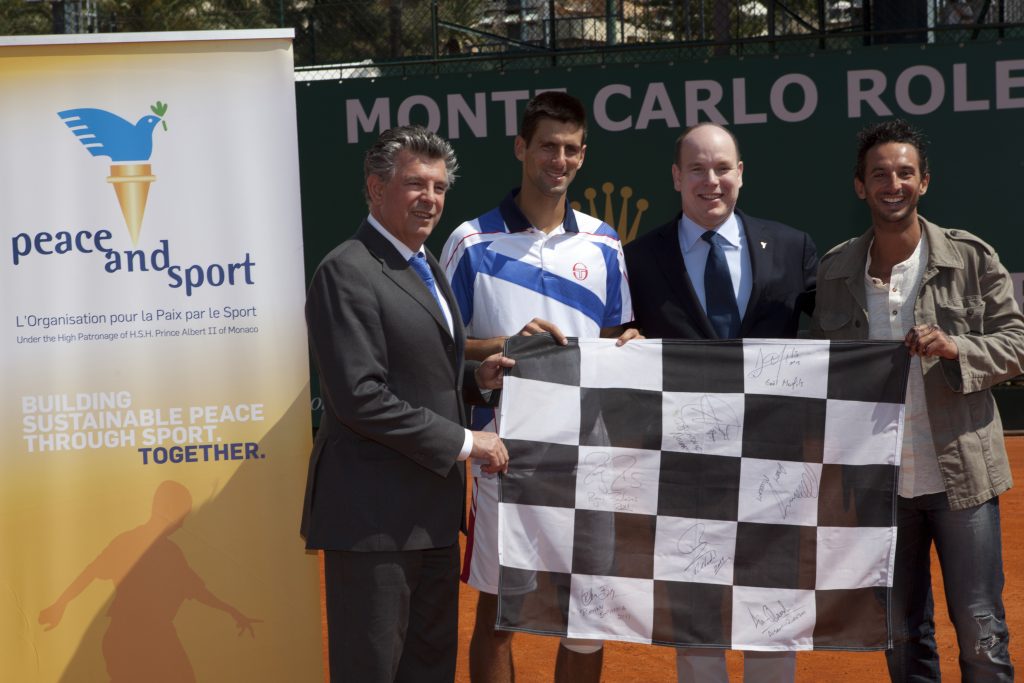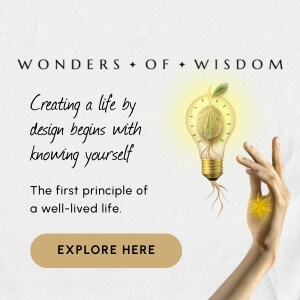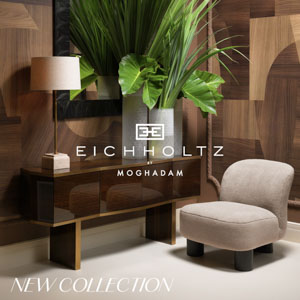Novak Djokovic: a career path paved in gold

By winning at the Paris Olympics, the Serbian tennis player claimed the only title he was missing, and completed the Golden Slam. We take a look back at the extraordinary career of a Monegasque resident whose opinions make the news almost as much as his sporting achievements.
A match for the ages. Novak Djokovic won the Olympic gold medal on Sunday 4 August, after nearly 3 hours and two of the tightest possible sets (7-6, 7-6) against a Carlos Alcaraz at his best. It was the only thing that was missing from the Serbian tennis player’s trophy cabinet. At 37, he was the oldest player to reach an Olympic final.
As he climbed onto the top step of the podium at the Paris 2024 Olympic Games, Novak Djokovic had achieved the impossible, becoming probably the greatest tennis player of all time. A legend. A monument. The golden pinnacle to an extraordinary career that started as a child in the former Yugoslavia.
World tennis domination: a childhood dream come true
To become the best tennis player in the world: when Novak was interviewed on Serbian television aged only 7, his aim was already clear. Transparent, in fact. On the same programme, the youngster said he remained fair play and made a point of never losing his temper with an opponent who was better than him. And then it was back to work: for the Belgrade native, tennis is a duty first, and a game second. He rose to the top of the discipline. Nothing, and no one got in his way as he headed for the summit of world tennis.
The very young Novak already had a racket in his hands when he was 4 years old. Born on 22 May 1987 in Belgrade, he is the eldest son of Serbian skiers Srđan and Dijana Djokovic, who went into the restaurant business at the end of their sports careers. From a rather humble background, Novak first stepped onto the court along with his two younger brothers, Marko and Đorđe. The young prodigy joined the professional circuit in 2003, at the age of 16. The following year, he reached the junior semi-finals (singles and doubles) of the Australian Open. The Djokovic rocket was launched. And is yet to come back down.
From the early 2010s onwards, victories came one after the other, records began to fall, and superlatives started to run out. World number one in the ATP rankings in 2011. Top dog again in 2012, and named sportsman of the year by several bodies. In 2013, Djoko won his third consecutive Australian Open, as well as his third Masters.
Three years later, he took his first French Open on Paris clay. In 2024, Novak Djokovic has some 24 Grand Slam titles to his name, as well as holding the world record for Masters titles.
With one of the most impressive records of the Open era, the Serb is rightly regarded, alongside Roger Federer and Rafael Nadal, as one of the greatest tennis players of all time. A living tennis legend.
A legendary status which, as with many exceptional sportsmen and women, is down to both the perseverance of the athlete and the unfailing support of those around him. Starting with Novak Djokovic’s wife, Jelena. They met in high school in Belgrade in 2003. Jelena now follows her champion husband on all his trips. He married his number one female fan in 2014 in Montenegro.
Family first
“When I first saw her walking towards me (…) in her wedding dress, I thought she looked like an angel,” recalls the tennis player, while acknowledging the strains his status as a tennis superstar brought to bear on their relationship.
As Novak and Jelena’s relationship started to suffer from the distance between them, the player finally admitted that it was “inevitable that we had to share this journey together, that Jelena had to share my lifestyle, otherwise we wouldn’t have been able to stay together.” She became the director of the Novak Djokovic Foundation in 2007, and their solid relationship has withstood the test of time and the pressures of sport and the media.
Novak and Jelena have two children: Stefan, born in 2014, and Tara, in 2017. Although still a little young to understand his father’s popularity, Stefan now follows him and encourages him at most of his matches – support that his Dad says means a great deal, admitting he is particularly happy to be able to play and win in front of his children. But it’s not always easy to keep up with their star of a Dad.
Embed from Getty ImagesKnown for his mood swings, Novak can, by his own admission, unleash a ““dynamic energy that sometimes turns into a roar or an explosion.” A strong character, too strong perhaps, that sometimes gets more media coverage than Djokovic’s sporting achievements themselves.
Strongly held beliefs…
Because when Djoko makes the headlines, it’s not always in a good way. With opinions that are as strong as his forehand, the player isn’t shy about expressing his views. Even if they clash with mainstream opinion.
Novak paid the price during the health crisis, as he made it known he was completely opposed to vaccination against Covid-19 – or, more accurately, to compulsory vaccination. To the point of provoking something of an international diplomatic incident and a worldwide outcry, in proportion to his notoriety.
In January 2022, Djokovic arrived at Melbourne airport, where he was due to take part in the Australian Open. However, the player refused to disclose his vaccination status, even though it was compulsory if he was to play in the tournament. Apprehended by the authorities as he got off the plane, the world number 1 tennis was placed in confinement and had his visa revoked before the Australian courts decided, under pressure from citizens who were outraged by this double standard, to refuse Novak Djokovic entry to the country.
Embed from Getty ImagesPrevented from competing for ‘political’ reasons, the tennis star became the champion of anti-vaxxers the world over. “Novak has become the symbol and leader of the free world,” his father Srdjan Djokovic declared, even daring to compare his son’s plight to Christ’s crucifixion. Novak was hailed as a hero in the fight against ‘Big Pharma’ by some, and reviled by others.
Widely reported and commented on by the world’s media, Djokovic’s Australian soap opera left scars. Two years on, the incident still appears painful for the player: “the whole world was against me,” Novak lamented in an interview last December, regretting having become “a global super-villain.”
This didn’t prevent him from returning to and winning the Australian Open in January of the following year. Or winning at Roland-Garros a few weeks later, wresting the world number 1 title from Rafael Nadal.
Always true to himself
At the same time, Djokovic and his wife invested in a Danish company specialising in biotechnology, in the hope of finding an alternative treatment for Covid-19. Also in 2020, the player donated one million euros to Serbia, to provide medical equipment to hospitals and help his native country overcome the Covid-19 pandemic.
His way perhaps of telling the whole world that on and off the court, Djoko follows his own path, the one he considers to be right, whether people like it or not. Disregard for what people may think: a philosophy that the star applies in many other areas. Food, money, religion, even diplomacy, Djoko has a strong opinion on pretty much everything.
Recognised as an ambassador for gluten-free food, Novak Djokovic surprised his fans by announcing in 2016 that he had become a vegetarian. And even vegan, except for fish. It’s an unusual diet for an athlete of his level.
Then in 2018, the multi-millionaire publicly called for an increase in tennis players’ prize money, which he felt was insufficient.
At the same time, Djokovic announced his intention to break away from the ATP system and create “his own” union of professional players. He did so in 2020, launching the Professional Tennis Players Association (PTPA), with around sixty player members when it was created.
Monaco, “like home” for Djoko
A Monegasque resident since 2007, Novak Djokovic is not the only tennis player to have taken up residence in the Principality, as he was followed by the likes of Daniil Medvedev, Holger Rune and Stefanos Tsitsipas.
The love story between the Serbian player and the Principality is not a recent one. By the time he was just 17, the young Novak was already spending most of his time in the Principality, where his coach lived and where several major tournaments are held.
So it was a natural move when Djokovic decided to buy a home in Monte Carlo in the early 2000s. On Avenue Princesse Grace, what’s more, one of the most expensive and exclusive streets in the world.
Although he moved to Spain in 2020, Djoko makes no secret of the fact that Monaco is his favourite home: “My children were born here,” he recently mentioned, “The Monte-Carlo Country Club is where I do most of my training throughout the year. I feel at home here.”
Embed from Getty ImagesLoving to live in Monaco is one thing. Winning in Monaco is another. Against all the odds, the Serb has not won the Rolex Monte-Carlo Masters since 2015, coming up against a stronger opponent in the quarter-finals at best– and even deliberately skipping the tournament in April. “Monte Carlo hasn’t been very lucky for me in recent years,” he concedes, offering by way of an explanation “the added pressure of playing ‘at home’ in front of (his) family and friends.”
Or maybe it’s the gruelling pace the champion has to keep up, as each year he has to manage the transition between the hard and clay court seasons, with clay being longer and harder to adjust to.
In any case, it is in Monaco that Novak Djokovic hones his tennis skills. And it is in Monaco that his future victories are forged, specifically at the Monte-Carlo Country Club. “I know the club very well,” he said in 2023: “many top players live in Monaco and use the club as a training base. The club is transformed during tournament weeks, but it’s a great feeling to be able to sleep in your own bed after a match.”
The Country Club gym, the Monte-Carlo Marine Spa… In short, “you have what you want in Monaco, everything you need to relax (…), everything you need to take it easy,” said the player in an interview in the early 2010s.
A committed player
Djoko loves Monaco, and Monaco loves him back. So much so that in 2012 Prince Albert II personally awarded him the famous silver gilt medal for Physical Education and Sport. The distinction is awarded to individuals who, through outstanding performance, sustained and exemplary practice or teaching, contribute to the development of physical education and sport in the Principality.
Because Novak Djokovic didn’t wait until he was at the pinnacle of world tennis to become socially responsible. As a member of the “Champions for Peace” club, a collective of high-level athletes set up by the Monaco-based Peace and Sport organisation, the player regularly uses his fame to support causes that are close to his heart.

In 2012, for example, he attended the launch of the International Day of Sport for Development and Peace at the United Nations headquarters. Or, in 2015, when he took part in a march in Monaco to celebrate the 25thanniversary of the Convention on the Rights of the Child.
Or when he donates his rackets to raise funds, as he did on 24 June for the ‘Cœur central’ event at the Monte-Carlo Country Club, or in 2021 for the ocean protection charity ‘Ensemble pour Thalas’.
As an ambassador for the Fondation Princeses Charlène, the tennis player is also convinced that “supporting underprivileged children through education and sport can help them to become responsible adults.”
Embed from Getty ImagesThe Paris Olympics, the greatest victory of all
“Children,” continues Djoko, “can achieve their dreams by learning, by teaching them hard work and the right values.” Speaking of childhood dreams, Djoko was overcome with emotion in the arms of his own children, Stefan and Tara, on Sunday 4 August.
A golden homecoming. KOD KUĆE JE NAJLEPŠE 🇷🇸❤️🥇 pic.twitter.com/8KPvRbcDT4
— Novak Djokovic (@DjokerNole) August 12, 2024
“I couldn’t be happier, the feeling I had when I won the match was like nothing I’ve experienced in my career,” said the newly-crowned Olympic champion, moved to tears: “There are always doubts, but the faith and belief that I can achieve my goals are always stronger. It was clear in my mind that this was my last chance to win an Olympic gold medal, so I had to focus as hard as possible on my goal. Nothing can beat this victory.”











